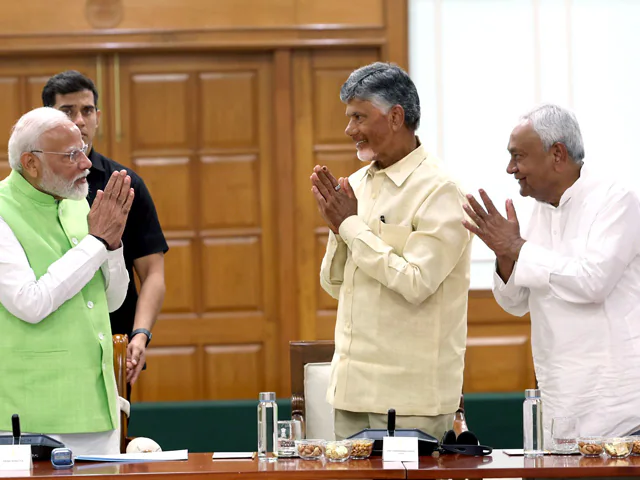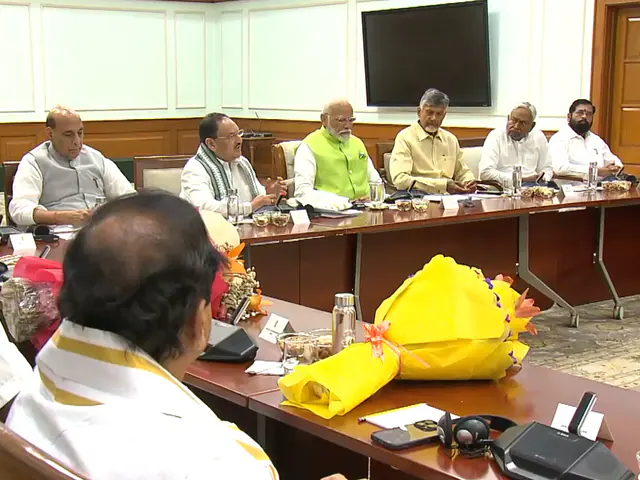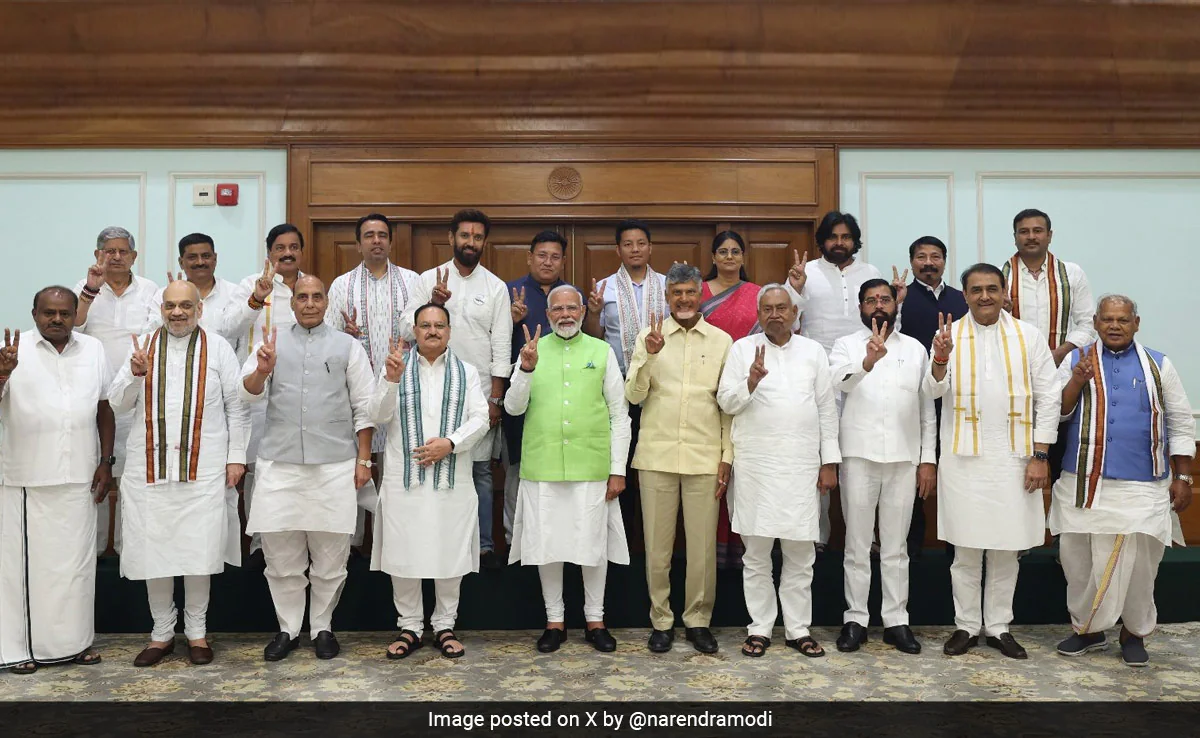Nitish Kumar’s Political Maneuvering
PM Narendra Modi has garnered written support from two key regional leaders, Chandrababu Naidu and Nitish Kumar. Nitish Kumar, the Chief Minister of Bihar and leader of the Janata Dal (United) [JD(U)], has a history of shifting political alliances to maintain his grip on power. His recent move back to the National Democratic Alliance (NDA) from the opposition coalition INDIA is a testament to his strategic political agility.
- Historical Context: Kumar’s political journey is marked by alliances and realignments. Initially part of the NDA, he shifted to the Mahagathbandhan (Grand Alliance) with the RJD, Congress, and Left parties in 2015, only to return to the NDA in 2017. His latest shift from the opposition back to the NDA highlights his ability to navigate complex political terrains.
- Current Dynamics: Kumar’s return to the NDA comes at a critical time, as the BJP looks to consolidate its position ahead of the 2024 Lok Sabha elections. His support is seen as a strategic boost to the NDA, particularly in Bihar, a state with significant electoral influence.

Chandrababu Naidu’s Strategic Endorsement
Chandrababu Naidu, leader of the Telugu Desam Party (TDP), has also extended his written support to PM Modi. Naidu’s endorsement is pivotal as it suggests a potential realignment of political forces in Andhra Pradesh, where the TDP holds substantial sway.
- Political Influence: Naidu’s backing can potentially shift the political dynamics in Andhra Pradesh, providing the NDA with a stronger foothold in the state. His support may help the BJP secure a broader coalition and enhance its electoral prospects in the southern region.
- Alliance Significance: This endorsement marks a significant moment for the NDA, which aims to leverage regional leaders’ influence to fortify its position at the national level. Naidu’s support is particularly noteworthy given his previous opposition to the BJP.
The Symbolic Oath-Taking Ceremony
The oath-taking ceremony scheduled for Saturday is more than a formal event; it symbolizes the renewed strength and unity within the NDA. This ceremony will be attended by key figures, including Samrat Choudhary and Vijay Sinha, who are set to take oaths as Deputy Chief Ministers of Bihar.
- Ceremony Highlights: The event will see the swearing-in of several ministers, reinforcing the NDA’s commitment to governance and development. It is expected to be a high-profile affair with significant political messaging.
- Political Messaging: The ceremony aims to project a unified front within the NDA, showcasing stability and cooperation among its members. This is crucial for building public confidence and demonstrating the alliance’s readiness to govern effectively.
Reactions and Implications
The political endorsements from Nitish Kumar and Chandrababu Naidu have sparked various reactions across the political spectrum. These developments carry significant implications for the upcoming elections and governance.
- Strategic Advantage: The support from Kumar and Naidu is seen as a strategic victory for PM Modi, strengthening the NDA’s electoral prospects. This alliance is likely to bolster the BJP’s position in crucial states like Bihar and Andhra Pradesh.
- Opposition’s Challenge: The opposition, particularly the RJD led by Tejashwi Yadav, has expressed discontent with these developments. The RJD sees Kumar’s move as a setback but remains determined to challenge the NDA in future political contests.

Conclusion: A Pivotal Moment in Indian Politics
The written endorsements from C. Naidu and Nitish Kumar to PM Modi, along with the forthcoming oath-taking ceremony, mark a pivotal moment in Indian politics. This development underscores the importance of strategic alliances and the dynamic nature of political manoeuvres. As the NDA moves forward with renewed strength and unity, the implications for governance and upcoming elections will be closely monitored by political analysts and stakeholders.
The current political landscape is evolving rapidly, and these endorsements reflect the strategic calculations of regional leaders aiming to maximize their influence and ensure stability. The impact of these developments on the future of Indian politics will be significant and is sure to shape the political discourse in the coming months.



